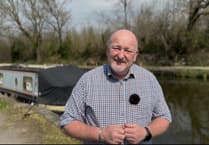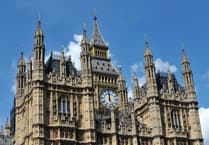A decision to refuse planning permission for an “exemplar eco house” has been upheld after a landowner failed to show it qualified for a special status.
Sam Nowogrodski had wanted to replace two agricultural buildings on land he owns beside the road from Llancayo to Trostrey, and near the western edge of Gwehelog, in Monmouthshire with a house.
His application stated his home, which would be among a row of planted trees, would be “an exemplary eco-home with sustainable design features that minimise energy use.” Plans show it would have been built from sustainably-sourced timber with a ‘green’ grass roof.
But the application was refused by Monmouthshire County Council in November 2021, which said it was against planning policy which states new homes in the open countryside, outside of village or town boundaries, can only be allowed in exceptional circumstances.
Mr Nowogrodski asked Planning and Environment Decisions Wales to overturn the refusal, but its inspector Ian Stevens dismissed his appeal.
He backed the council’s findings that the application was at odds with its local, and national, planning policies and said Mr Nowogrodski, of Cwmparc, near Treochy, hadn’t put forward sufficiently detailed information for it to be considered under the Welsh Government’s One Planet policy.
That allows “low impact” homes to be built in the countryside which do not “significantly diminish environmental quality”, but such developments must also, within five years, meet the minimum food, energy and waste “assimilation” of the inhabitants and also provide their income.
A management plan, showing how the development can do, written by a “competent person” must also produced with a One Planet application.
Inspector Mr Stevens said he didn’t have enough information to support such an application and wrote in his appeal decision: “While the appellant has referred to several sustainability features, the level of detail is insufficient to allow for full assessment against national policy and guidance.
“The appellant states they will show how within five years the appeal site can fulfil 65 per cent of their basis (sic) needs, however, this evidence has not been provided. The appellant’s statement that they will use only their global fair share of resources, equivalent to six acres of land, has not been substantiated.”
Though Mr Stevens noted the “low-energy and sustainable design features” the policy requires they are linked with a “comprehensive and robust management plan for the development” which would be enforced either by a planning condition or legal agreement.




Comments
This article has no comments yet. Be the first to leave a comment.